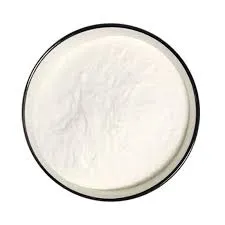
Dec . 17, 2024 13:20 Back to list
hpmc applications
Applications of HPMC in Various Industries
Hydroxypropyl methylcellulose (HPMC) is a versatile cellulose ether that has found extensive applications across various industries due to its unique properties. This widely used compound is derived from cellulose through etherification, and its chemical structure allows it to interact favorably with water and other substances. HPMC is appreciated for its thickening, emulsifying, and film-forming capabilities, making it a popular choice in pharmaceuticals, food, construction, cosmetics, and more.
Pharmaceutical Applications
In the pharmaceutical industry, HPMC is commonly used as an excipient in drug formulations. Its hydrophilic properties enable it to form gels and provide a sustained release of active ingredients, which is particularly valuable in the development of controlled-release oral medications. HPMC is also employed in the formulation of ophthalmic solutions and coatings as it enhances the viscosity and stability of these products. Furthermore, its ability to maintain moisture content is crucial in the production of tablets, enhancing their integrity and bioavailability.
Food Industry
The food industry has embraced HPMC for its multifunctional attributes. It serves as a thickener, emulsifier, and stabilizer in various food products. For example, HPMC can enhance the texture and mouthfeel of sauces, dressings, and baked goods. It helps prevent syneresis (the separation of liquid from a gel), thereby improving overall product quality and shelf-life. Being a plant-derived ingredient, HPMC is suitable for vegetarian and vegan food products, making it an appealing choice for manufacturers catering to health-conscious consumers.
hpmc applications

Construction Sector
In the construction industry, HPMC plays a pivotal role in improving the workability and performance of building materials. It is commonly used in tile adhesives, cement mixes, and gypsum-based products. By enhancing water retention, HPMC helps prevent cracking in dry mortars and ensures better adhesion between substrates. Its ability to form a film aids in creating a hydrophobic barrier, thus enhancing the durability of construction materials. The incorporation of HPMC in plaster and putty also facilitates smoother application and improved finish.
Cosmetics and Personal Care
HPMC is a favored ingredient in the cosmetics and personal care sector due to its excellent thickening and film-forming properties. It is used in a variety of products, including lotions, creams, shampoos, and conditioners. HPMC aids in stabilizing emulsions, ensuring that oils and water-based components blend seamlessly. Its moisturizing properties help improve skin hydration, making it ideal for products targeting dry skin. Additionally, HPMC can be used as a film-forming agent in sun protection formulations, providing a protective layer against UV radiation.
Conclusion
The applications of HPMC are widespread and invaluable across various industries. Its ability to improve texture, stability, and performance in products makes it an essential ingredient in pharmaceuticals, food processing, construction, and cosmetics. As consumer demands evolve towards more natural and functional ingredients, HPMC stands out due to its plant-derived origin and versatility. With ongoing research and innovation in formulation technologies, the future of HPMC applications seems promising, offering even more opportunities for enhancement and development in various fields. Whether as an excipient in drug delivery systems, a stabilizer in food products, or a thickener in personal care items, HPMC continues to prove its significance in modern formulations, underscoring its role as a multifunctional agent in today’s market.
-
Versatile Hpmc Uses in Different Industries
NewsJun.19,2025
-
Redispersible Powder's Role in Enhancing Durability of Construction Products
NewsJun.19,2025
-
Hydroxyethyl Cellulose Applications Driving Green Industrial Processes
NewsJun.19,2025
-
Exploring Different Redispersible Polymer Powder
NewsJun.19,2025
-
Choosing the Right Mortar Bonding Agent
NewsJun.19,2025
-
Applications and Significance of China Hpmc in Modern Industries
NewsJun.19,2025







